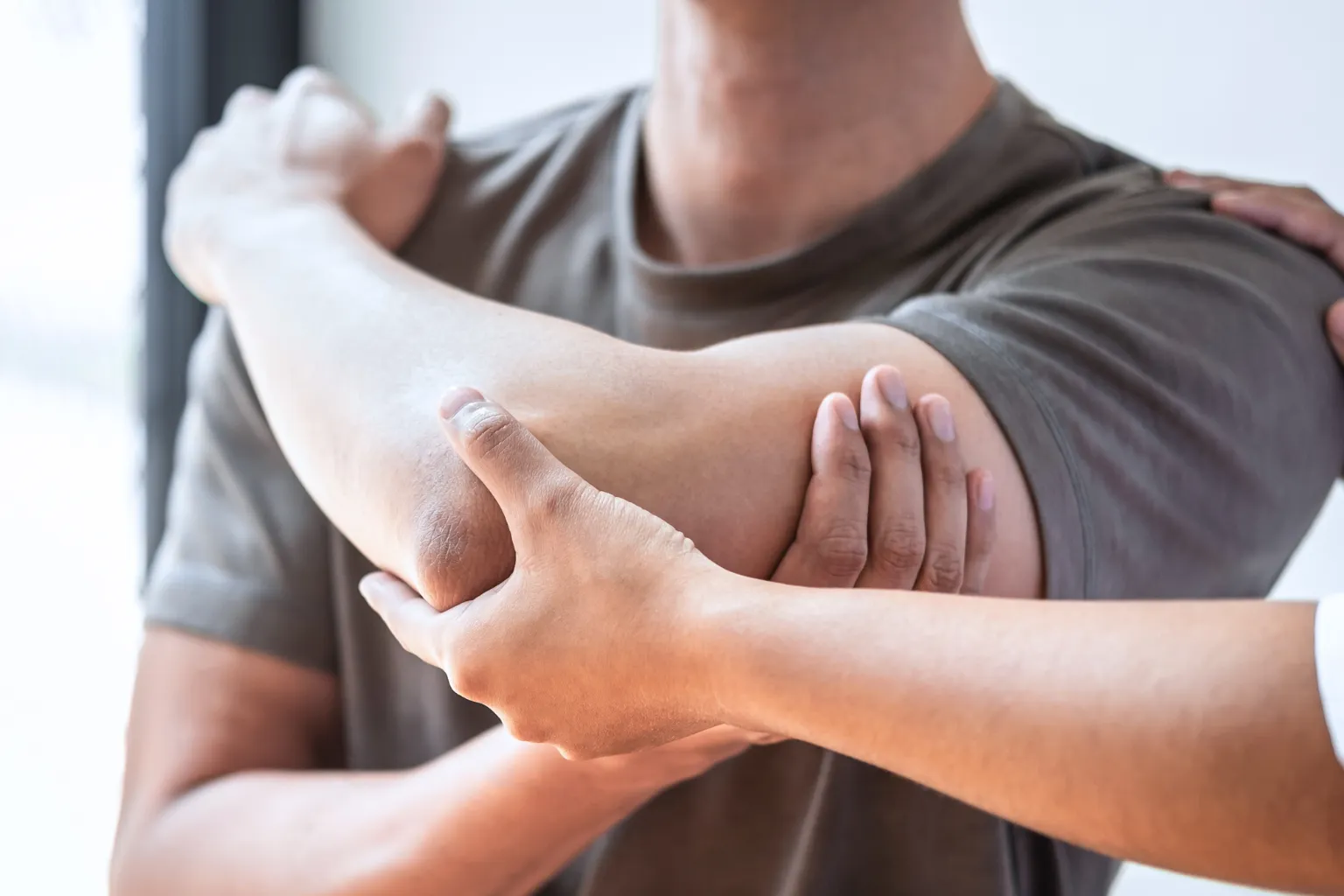Bachelor of Physiotherapy (BPT) is a 4.5-year undergraduate program that prepares students for a rewarding career in physical therapy and rehabilitation. The program provides a balanced blend of theoretical foundations and practical training in physiotherapy, led by experienced faculty. The curriculum encompasses foundations of basic medical sciences, study of various bodily systems and disorders, comprehensive exploration of physiotherapy principles.
The BPT education course are theory based on anatomy, physiology and biomechanics combined with practical training in clinics. Students gain hands-on experience through mandatory internships, fostering critical thinking and patient management skills. Considering that the demand for physiotherapists is growing globally as people live longer, adopt more sedentary habits and focus on preventive healthcare, grads can pursue a variety of careers in hospitals or rehabilitation centers; with sports teams or at wellness clinics; even in their own private practice. Apart from giving students the technical knowledge, it also centers around compassion, ethical practices. The evolving practices in physiotherapy such as robotic therapy, tele-rehabilitation and virtual care etc., is going to help professionals of this field make important strides towards improving the mobility, functionality and quality of life for patients.

Duration
- 4 years (Semester System) with ME-ME
Eligibility
- 10+2 or equivalent with any stream pass from a recognized Board with a minimum of 50% marks
Major Courses
- HUMAN PHYSIOLOGY–1
- BIOCHEMISTRY
- FUNDAMENTALS OF EXERCISE THERAPY AND HEALTH CARE SYSTEM
- HUMAN ANATOMY–2
- HUMAN PHYSIOLOGY–2
- PSYCHOLOGY & SOCIOLOGY
- FUNDAMENTALS OF ELECTRO THERAPY
- CLINICAL ORIENTATION
- EXERCISETHERAPY- 1
- ELECTROTHERAPY- 1
- BIOMECHANICS & KINESIOLOGY-1
- MICROBIOLOGY
- PHARMACOLOGY
- EXERCISETHERAPY- 2
- ELECTROTHERAPY- 2
- BIOMECHANICS & KINESIOLOGY-2
- PATHOLOGY
- ENVIRONMENTAL SCIENCE
- GENERAL MEDICINE- 1
- GENERAL SURGERY- 1
- CLINICAL ORTHOPEDICS- 1
- PHYSIOTEHRAPY IN MEDICAL & SURGICAL CONDITIONS- 1
- PHYSIOTHERAPY IN ORTHOPEDICS–1
- RESEARCH METHODOLOGY, & EVIDENCE BASED PRACTICE
- GENERAL MEDICINE- 1
- GENERAL SURGERY- 1
- CLINICAL ORTHOPEDICS- 1
- PHYSIOTEHRAPY IN MEDICAL & SURGICAL CONDITIONS- 1
- PHYSIOTHERAPY IN ORTHOPEDICS–1
- BIOSTATISTICS & COMPUTER APPLICATIONS
- CLINICAL NEUROLOGY, PSYCHIATRY & NEUROSURGERY - 1
- PHYSIOTEHRAPY IN NEUROLOGICAL & NEUROSURGICAL CONDITIONS- 1
- CLINICAL CARDIOTHORACIC DISEASES & SURGERIES- 1
- PHYSIOTEHRAPY IN CARDIOTHORACIC DISEASES & SURGICAL CONDITIONS- 1
- SPORTS PHYSIOTHERAPY & EXERCISE PRESCRIPTION
- CLINICAL ROTATION
- CLINICAL NEUROLOGY, PSYCHIATRY & NEUROSURGE – 2
- PHYSIOTEHRAPY IN NEUROLOGICAL & NEUROSURGICAL CONDITIONS- 2
- CLINICAL CARDIOTHORACIC DISEASES & SURGERIES- 2
- PHYSIOTEHRAPY IN CARDIOTHORACIC DISEASES & SURGICAL CONDITIONS- 2
- COMMUNITY PHYSIOTHERAPY & REHABILITATION
- DISSERTATION/PROJECT
Future Prospects
After completion of BPT, a physiotherapy student can pursue higher study and specialize in the discipline of physiotherapy; they can join MPT with specialty in physiotherapy, encompassing cardiopulmonary, sports, musculoskeletal, neurology, orthopedic, geriatric, health promotion, and disability rehabilitation. BPT graduates are also eligible for postgraduate degrees in hospital administration, business management, public health management, and various other fields. A physiotherapist working in a hospital should expect to get paid at least Rs. 5-6 lakhs per year. Remuneration rises with experience, depending on work production and the sort of company in which they work. BPT graduates can pursue postgraduate studies and enter academia or research. This avenue allows them to contribute to the field’s knowledge and train future generations of physiotherapists.
1. Hospitals:
- Work as physiotherapists in hospitals and medical centers, providing rehabilitation services to patients recovering from injuries, surgeries, or illnesses.
- Utilize communication skills to interact with patients, families, and multidisciplinary healthcare teams, facilitating effective care coordination and patient education.
- Apply knowledge of technology to manage electronic health records, access diagnostic imaging reports, and utilize specialized equipment for patient assessment and treatment.
- Private Clinics:
- Establish or join private physiotherapy clinics, offering personalized treatment plans and rehabilitation services to clients with musculoskeletal or neurological conditions.
- Use entrepreneurial skills to manage clinic operations, market services, and attract clients seeking specialized physiotherapy care.
- Incorporate yoga and Indian human movement science into treatment plans to promote holistic wellness and optimize patient outcomes.
- Sports Facilities:
- Serve as sports physiotherapists for athletic teams, sports clubs, or fitness centers, providing injury prevention, rehabilitation, and performance enhancement programs for athletes.
- Apply expertise in clinical diagnosis and imaging to assess sports-related injuries and develop customized treatment protocols tailored to athletes’ specific needs.
- Utilize communication skills to educate athletes on injury prevention strategies, proper exercise techniques, and rehabilitation exercises to optimize athletic performance and minimize injury risk.
Rehabilitation Centers:
- Work in rehabilitation centers or residential care facilities, providing long-term care and rehabilitation services to individuals with chronic illnesses, disabilities, or age-related conditions.
- Implement technology-driven rehabilitation programs, including virtual reality therapy, robotic-assisted therapy, and tele-rehabilitation, to enhance patient engagement and outcomes.
- Incorporate yoga and mindfulness practices into rehabilitation programs to promote physical and mental well-being among residents and improve overall quality of life.
Schools and Special Education Centers:
- Collaborate with educators and special education professionals to support students with disabilities or developmental delays in school settings.
- Use communication skills to liaise with teachers, parents, and school administrators to develop individualized education plans (IEPs) and implement strategies to address students’ physical needs within the classroom.
- Integrate yoga and movement-based activities into school programs to enhance students’ physical fitness, motor skills, and concentration levels.
Further Information
An Autonomous College


 Apply Now
Apply Now
 Fee Payment
Fee Payment
 Admission
Admission
 Enquiry
Enquiry
 Quick Links
Quick Links